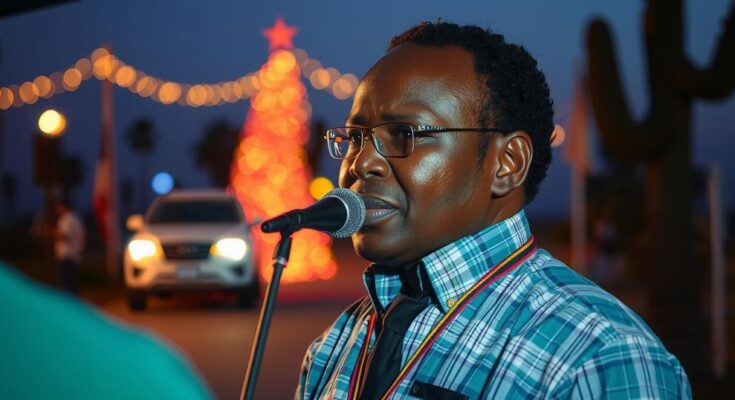On Christmas Eve, Mozambique’s capital faced intense unrest following a disputed election outcome that confirmed the ruling Frelimo party’s victory. Protests led to violence, vandalism, and extensive looting, claiming over 100 lives since the election. Opposition leader Venancio Mondlane denounced the court’s decision and emphasized the need for electoral accountability, as public services largely halted amid fears of escalating turmoil.
Mozambique witnessed heightened tensions on Christmas Eve following disputes over the recent electoral outcome. Violence erupted in the capital, Maputo, and northern cities, leading to severe unrest a day after the country’s highest court confirmed the victory of the ruling Frelimo party in the controversial elections. The aftermath of the elections has already claimed over 100 lives, igniting fears of further violence as opposition leader Venancio Mondlane decried the court’s decision as a “humiliation of the people.” On the ground, police responded to protests with armored vehicles as demonstrators clashed with law enforcement, leading to widespread vandalism and looting across the city and beyond.
Reports indicated that public services and transportation came to a halt with shops, banks, and petrol stations shuttered in anticipation of escalating unrest. The director of Maputo Central Hospital conveyed that the facility was operating under critical conditions, with a staggering number of injured individuals seeking treatment. As tensions spread to various northern provinces, local media reported further violence, underscoring the potential for a continued decline in public order amid allegations of election irregularities.
The controversial election, held on October 9, resulted in Frelimo’s Daniel Chapo securing 65.17 percent of the vote, although opposition representatives claim this was an inflated figure. With opposition factions calling for greater electoral accountability, Mondlane proposed the creation of a “People’s Constitutional Court” to affirm his claimed presidency. As the country braces for further unrest, Chapo’s upcoming inauguration in mid-January is projected to be contentious.
This situation presents a complex interplay of political tensions and public unrest, raising concerns about credibility within Mozambique’s electoral processes and the potential ramifications for peace and stability in the region. Public sentiment is heavily charged, with calls for electoral transparency dominating the discourse as Mozambicans navigate a fraught political landscape.
Mozambique’s political climate has recently been fraught with controversy, particularly following the October 9 elections. The ruling Frelimo party’s confirmation as victors by the nation’s highest court has been met with allegations of election rigging and irregularities. This has triggered violent protests, particularly in areas with strong opposition support. The political instability has compounded public frustrations, leading to widespread unrest, property destruction, and a rising death toll as citizens call for electoral truth and accountability. The situation is exacerbated by the holiday season, a time typically marked by communal celebration and commerce.
In summary, the unrest in Mozambique following the disputed electoral results highlights significant political turmoil and social unrest. With opposition leaders calling for accountability, the future of Mozambique’s governance remains precarious as public sentiment swells against perceived electoral fraud. The immediate implications for public safety and operational services are concerning, especially during the typically vibrant holiday season, underscoring the urgent need for dialogue and resolution in the nation’s political crisis.
Original Source: www.france24.com




